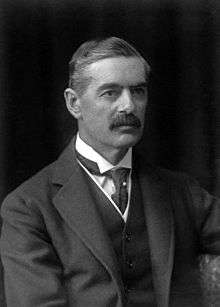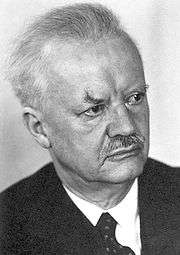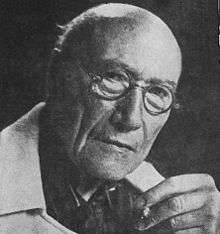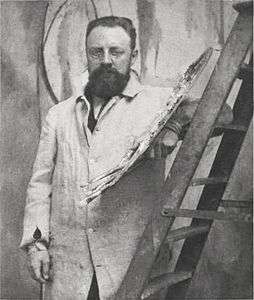1869
This article is about the year 1869. For other uses, see 1869 (disambiguation).
| Millennium: | 2nd millennium |
|---|---|
| Centuries: | 18th century · 19th century · 20th century |
| Decades: | 1830s · 1840s · 1850s · 1860s · 1870s · 1880s · 1890s |
| Years: | 1866 · 1867 · 1868 · 1869 · 1870 · 1871 · 1872 |
| 1869 in topic: |
| Humanities |
| Archaeology – Architecture – Art – Literature – Music |
| By country |
| Australia – Brazil - Canada – Denmark - France – Germany – Mexico – Norway - Philippines - Portugal– Russia - South Africa – Spain - Sweden - United Kingdom – United States |
| Other topics |
| Rail Transport – Science – Sports |
| Lists of leaders |
| Colonial Governors – State leaders |
| Birth and death categories |
| Births – Deaths |
| Establishments and disestablishments categories |
| Establishments – Disestablishments |
| Works category |
| Works |
| Gregorian calendar | 1869 MDCCCLXIX |
| Ab urbe condita | 2622 |
| Armenian calendar | 1318 ԹՎ ՌՅԺԸ |
| Assyrian calendar | 6619 |
| Bahá'í calendar | 25–26 |
| Bengali calendar | 1276 |
| Berber calendar | 2819 |
| British Regnal year | 32 Vict. 1 – 33 Vict. 1 |
| Buddhist calendar | 2413 |
| Burmese calendar | 1231 |
| Byzantine calendar | 7377–7378 |
| Chinese calendar | 戊辰年 (Earth Dragon) 4565 or 4505 — to — 己巳年 (Earth Snake) 4566 or 4506 |
| Coptic calendar | 1585–1586 |
| Discordian calendar | 3035 |
| Ethiopian calendar | 1861–1862 |
| Hebrew calendar | 5629–5630 |
| Hindu calendars | |
| - Vikram Samvat | 1925–1926 |
| - Shaka Samvat | 1790–1791 |
| - Kali Yuga | 4969–4970 |
| Holocene calendar | 11869 |
| Igbo calendar | 869–870 |
| Iranian calendar | 1247–1248 |
| Islamic calendar | 1285–1286 |
| Japanese calendar | Meiji 2 (明治2年) |
| Javanese calendar | 1797–1798 |
| Julian calendar | Gregorian minus 12 days |
| Korean calendar | 4202 |
| Minguo calendar | 43 before ROC 民前43年 |
| Nanakshahi calendar | 401 |
| Thai solar calendar | 2411–2412 |
| Wikimedia Commons has media related to 1869. |
1869 (MDCCCLXIX) was a common year starting on Friday (dominical letter C) of the Gregorian calendar and a common year starting on Wednesday (dominical letter E) of the Julian calendar, the 1869th year of the Common Era (CE) and Anno Domini (AD) designations, the 869th year of the 2nd millennium, the 69th year of the 19th century, and the 10th and last year of the 1860s decade. As of the start of 1869, the Gregorian calendar was 12 days ahead of the Julian calendar, which remained in localized use until 1918.
Events
January–March
- January 3 – Abdur Rahman Khan is defeated at Tinah Khan and exiled from Afghanistan.
- January 5 – Scotland's oldest professional football team, Kilmarnock F.C., is founded.
- January 20 – Elizabeth Cady Stanton is the first woman to testify before the United States Congress.
- January 21 – The P.E.O. Sisterhood, a philanthropic educational organization for women, is founded at Iowa Wesleyan College in Mount Pleasant, Iowa.
- January 27 – The Republic of Ezo is proclaimed on the northern Japanese island of Ezo (which will be renamed Hokkaidō on September 20) by remaining adherents to the Tokugawa shogunate.
- February 5 – Prospectors in Moliagul, Victoria, Australia, discover the largest alluvial gold nugget ever found, known as the "Welcome Stranger".
- February 20 – Ranavalona II, the Merina Queen of Madagascar, is baptized.
- February 26 – The 2½-year-old Mahbub Ali Khan begins a 42-year reign as Nizam of Hyderabad.
- March – In Japan, the daimyo of the Tosa, Hizen, Satsuma and Chōshū Domains are persuaded to 'return their domains' to the Emperor Meiji, leading to creation of a fully centralized government in the country.[1]
- March 1 – North German Confederation issues 10gr and 30gr value stamps, printed on goldbeater's skin.
- March 4 – Ulysses S. Grant is sworn in as President of the United States.
- March 6 – Dmitri Mendeleev makes a formal presentation of his periodic table to the Russian Chemical Society.
- March 9 – Southern Illinois University Carbondale is founded.
- March 24 – Titokowaru's War ends with surrender of the last Māori troops at large in the South Taranaki District of New Zealand's North Island.
April–June
- April 6 – The American Museum of Natural History is founded in New York.
- May – In France, the opposition, consisting of republicans, monarchists and liberals, polls almost 45% of the vote in national elections.
- May 4–10 – Naval Battle of Hakodate: The Imperial Japanese navy defeats adherents of the Tokugawa shogunate.
- May 6 – Purdue University is founded in West Lafayette, Indiana.
- May 10 – The First Transcontinental Railroad in North America is completed at Promontory, Utah, by driving of the "golden spike".[2]
- May 15 – Women's suffrage: In New York, Susan B. Anthony and Elizabeth Cady Stanton form the National Woman Suffrage Association.
- May 18 – One day after surrendering at the land Battle of Hakodate (begun 4 December 1868), Enomoto Takeaki turns over Goryōkaku to Japanese forces, signaling the collapse of the Republic of Ezo.
- May 22 – Sainsbury's first store, in Drury Lane, London, is opened.[3]
- May 26 – Boston University is chartered by the Commonwealth of Massachusetts.

- June 1 – The Cincinnati Red Stockings open the baseball season as the first fully professional team.
- June 2 – Sherwood College is founded in Nainital, India.
- June 15 – John Wesley Hyatt patents celluloid, in Albany, New York.
- June 27 – The fortress of Goryōkaku is turned over to Imperial Japanese forces, bringing an end to the Republic of Ezo, the Battle of Hakodate and the Boshin War.
- June 30-July 2 – The first Estonian Song Festival takes place in Tartu.
July–September
- July 10 – The Swedish town Gävle is destroyed in a city fire. 8,000 people became homeless.
- August 9 – August Bebel and Wilhelm Liebknecht found the Social Democratic Workers' Party of Germany (SDAP).
- August 27 – The University of Oxford win the first international boat race held on the River Thames against Harvard University.[4]
- August 31 – Irish scientist Mary Ward is killed by a steam car, probably the world's first victim of a mechanically-propelled road vehicle.
- September 5 – The foundation stone is laid for Neuschwanstein Castle in Bavaria (southern Germany).
- September 11 – Work on the Wallace Monument is completed in Stirling, Scotland.
- September 12–13 – The P&O's SS Carnatic runs aground and sinks in the Red Sea; 31 drowned.
- September 24 – "Black Friday": The Fisk–Gould Scandal causes a financial panic in the United States.
October–December
- October 8 – Austria-Hungary sends reinforcements to battle the uprising in Krivošije
- October 11 – Red River Rebellion against British forces in Canada.[5]
- October 16 – England's first residential university-level women's college, the College for Women, predecessor of Girton College, Cambridge, is founded at Hitchin by Emily Davies and Barbara Bodichon.
- November 4 – The first issue of the scientific journal Nature is published in London, edited by Norman Lockyer.
- November 6 – The first game of American football between two American colleges is played. Rutgers University defeats Princeton University 6–4 in a forerunner to American football and College football.
- November 17 – In Egypt, the Suez Canal, linking the Mediterranean Sea with the Red Sea, is inaugurated in an elaborate ceremony.
- November 19 – The Hudson's Bay Company surrenders its claim to Rupert's Land in Canada under its letters patent back to the British Crown.[5]
- November 23 – In Dumbarton, Scotland, the clipper ship Cutty Sark is launched (it is one of the last clippers built, and the only one to survive into the 21st century).[4]
- December – Publication of Leo Tolstoy's novel War and Peace complete in book form concludes in Russia.
- December 7 – American outlaw Jesse James commits his first confirmed bank robbery in Gallatin, Missouri.
- December 8 – First Vatican Council opens.
- December 10 – The first American chapter of Kappa Sigma is founded at the University of Virginia.
- December 10 – The Wyoming territorial legislature gives women the right to vote, the first such law in the world.
- December 31 – Triple Alliance forces take Asunción in the Paraguayan War.
Date unknown
- Basutoland becomes a British protectorate (abolished in 1966).
- The capital of the Isle of Man moves from Castletown to Douglas.
- Arabella Mansfield became the first woman in the United States awarded a license to practice law, at Mount Pleasant, Iowa.
- James Gordon Bennett, Jr. of the New York Herald asks Henry Morton Stanley to find Dr. David Livingstone.
- The Co-operative Central Board (later Co-operatives UK) is founded in Manchester, England.
- Friedrich Miescher discovers deoxyribonucleic acid (DNA).
- French missionary and naturalist Père Armand David receives the skin of a giant panda from a hunter, the first time this species becomes known to a Westerner;[6] he also first describes a specimen of the "pocket handkerchief tree", which will be named in his honor as Davidia involucrata.
- In France Hippolyte Mège-Mouriès patents margarine.
- The University of Otago is founded, making it New Zealand's oldest University.
- Glasgow University Rugby Football Club is founded in Scotland.
Births
January–March
- January 4 – Tommy Corcoran, American baseball player (d. 1960)
- January 10 – Grigori Rasputin, Russian mystic (d. 1916)
- January 11 – Carl Theodore Vogelgesang, American admiral (d. 1927)
- January 15 – Stanisław Wyspiański, Polish dramatist, poet, painter and architect (d. 1907)
- January 25 – Max Hoffmann, German general (d. 1927)
- February 11
- Helene Kröller-Müller, Dutch museum founder and patron of the arts (d. 1939)
- Else Lasker-Schüler, German-born poet and author (d. 1945)
- February 14 – Charles Wilson, Scottish physicist and Nobel laureate (d. 1959)
- February 26 – Nadezhda Konstantinovna Krupskaya, Russian Marxist revolutionary and Vladimir Lenin's wife (d.1939)
- February 28 – William V. Pratt, American admiral (d. 1957)
- March 3
- Michael von Faulhaber, German cardinal and archbishop (d. 1952)
- Henry Wood, British conductor (d. 1944)
- March 12 – George Forbes, New Zealand Prime Minister and first leader of the New Zealand National Party (d. 1947)
- March 14 – Algernon Blackwood, English writer (d. 1951)
- March 18 – Neville Chamberlain, Prime Minister of the United Kingdom (d. 1940)
- March 22 – Emilio Aguinaldo, first President of the Philippines (d. 1964)
- March 23 – Calouste Gulbenkian, Armenian businessman and philanthropist (d. 1955)
- March 29 – Edwin Lutyens, British architect (d. 1944)
April–June
- April 2 – Hughie Jennings, American baseball player (d. 1928)
- April 4 – Mary Colter, American architect (d. 1958)
- April 8 – Harvey Cushing, American neurosurgeon (d. 1939)
- April 10 – Signe Bergman, Swedish suffragist (d. 1960)
- April 11 – Gustav Vigeland, Norwegian sculptor (d. 1943)
- April 12 – Henri Désiré Landru, French serial killer (d. 1922)
- April 27 – May Moss, Australian women's rights activist (d. 1948)
- May 3 – Warren Terhune, United States Navy Commander and 13th Governor of American Samoa (d. 1920)
- May 5 – Hans Pfitzner, German composer (d. 1949)
- May 12 – Carl Schuhmann, German athlete (d. 1946)
- May 18 – Rupprecht, Crown Prince of Bavaria, Bavarian military leader and last Bavarian crown prince (d. 1955)
- May 20 – John Stone Stone, American physicist and inventor (d. 1943)
- May 30 – Giulio Douhet, Italian general and air power theorist (d. 1930)
- June 7 – Grand Duke Alexander Alexandrovich of Russia (d. 1870)
- June 17 – Flora Finch, English-born comedian (d. 1940)
- June 27 – Hans Spemann, German embryologist, recipient of the Nobel Prize in Physiology or Medicine (d. 1941)
- June 28 – Lydia Wahlström, Swedish historian and women's rights activist (d. 1954)
July–September
- July 11 – Pío Valenzuela, Filipino doctor and patriot (d. 1956)
- July 19 – Xenophon Stratigos, Greek general (d. 1927)
- August 10 – Laurence Binyon, English poet and scholar (d. 1943)
- August 11 – Hale Holden, president of Chicago, Burlington and Quincy Railroad 1914-1918 and 1920-1929 (d. 1940)
- August 13 – Paul Behncke, German admiral (d. 1937)
- August 14 – Armas Järnefelt, Finnish composer and conductor (d. 1958)
- September 3 – Fritz Pregl, Austrian chemist, Nobel Prize laureate (d. 1930)
- September 11 – Charles Kilpatrick (cyclist), American one-legged trick cyclist (d. 1927]])
- September 17 – Christian Lous Lange, Norwegian pacifist, recipient of the Nobel Peace Prize (d. 1938)
- September 23 – Mary Mallon, "Typhoid Mary" (d. 1938)
October–December
- October 2 – Mohandas Gandhi, Indian political leader, Father of the Nation (d. 1948)
- October 21 – William Edward Dodd, American historian and diplomat (d. 1940)
- October 25 – John Heisman, American football coach (d. 1936)
- October 27 – Viola Allen, actress (d. 1948)
- October 31 – William A. Moffett, American admiral (d. 1933)
- November 10 – Wayne Wheeler, American temperance movement leader (d. 1927)
- November 11 – Victor Emmanuel III, King of Italy (d. 1947)
- November 20 – Herbert Tudor Buckland, seminal British Arts and Crafts architect (d. 1951)
- November 22 – André Gide, French writer and Nobel laureate (d. 1951)
- November 24 – Óscar Carmona, President of Portugal (d. 1951)
- November 25 – Herbert Greenfield, Premier of Alberta, Canada (d. 1949)
- November 30 – Gustaf Dalén, Swedish physicist and Nobel laureate (d. 1937)
- December 5 – Ellis Parker Butler, American humorist (d. 1937)
- December 16 – Hristo Tatarchev, Bulgarian revolutionary and leader of the revolutionary movement in Macedonia and Eastern Thrace (d. 1952)
- December 20 – Charley Grapewin, American vaudeville performer and stage and film actor (d. 1956)
- December 22
- Edwin Arlington Robinson, American poet (d. 1935)
- Nathan Paine, American lumber baron (d. 1947)
- December 24 – Henriette Roland Holst, Dutch poet and socialist (d. 1952)
- December 30 – Stephen Leacock, British-Canadian author and economist (d. 1944)
- December 31 – Henri Matisse, French painter (d. 1954)
Date unknown
- Harry Grant Dart, American cartoonist (d. 1938)
Deaths
January–June
- January 1
- Martin W. Bates, American senator (b. 1786)
- James B. Longacre, fourth Chief Engraver of the U.S. Mint (b. 1794)
- January 19 – Carl Reichenbach, German chemist (b. 1788)
- January 30 – William Carleton, Irish novelist (b. 1794)
- February 15 – Ghalib, Indian poet (b. 1796)
- March 8 – Hector Berlioz, French composer (b. 1803)
- March 20 – John Pascoe Grenfell, British admiral of the Brazilian Navy (b. 1800)
- March 24 – Antoine-Henri Jomini, French general (b. 1779)
- April 2 – Christian Erich Hermann von Meyer, German palaeontologist (b, 1801)
- April 20 – Carl Loewe, German composer (b. 1796)
- June 16 – Charles Sturt, Australian explorer (b. 1795)
- June 20 – Hijikata Toshizō, Japanese military commander (b. 1835)
July–December
- July 18 – Laurent Clerc, American advocate for the deaf (b. 1785)
- July 22 – John A. Roebling, American bridge engineer (b. 1806)
- July 28 – Carl Gustav Carus, German physiologist (b. 1789)
- August 31 – Mary Ward, Irish scientist and the first car crash victim (b. 1827)
- September 4 – John Pascoe Fawkner, Australian pioneer, settler and politician, Melbourne, Victoria (b. 1792)
- September 12 – Peter Mark Roget, British lexicographer (b. 1779)
- October 8 – Franklin Pierce, 14th President of the United States (b. 1804)
- October 13 – Charles Augustin Sainte-Beuve, French literary critic (b. 1804)
- October 16 – Joseph Ritner, American politician (b. 1780)
- October 23 – Edward Smith-Stanley, 14th Earl of Derby, Prime Minister of the United Kingdom (b. 1799)
- October 31 – Charles A. Wickliffe, American politician, 14th Governor of Kentucky (b. 1788)
- November 8 – Christodoulos Hatzipetros, Greek military leader (b. 1798)
- December 8 – Narcisa de Jesús Martillo, an Ecuadorian saint (b. 1832)
- December 18 – Louis Moreau Gottschalk, American composer and pianist (b. 1829)
In fiction
Main article: List of works of fiction set in 1869
References
- ↑ 天下
- ↑ "Ceremony at "Wedding of the Rails," May 10, 1869, at Promontory Point, Utah". World Digital Library. 1869-05-10. Retrieved 2013-07-20.
- ↑ Baren, Maurice (1996). How it All Began Up the High Street. London: Michael O'Mara Books. ISBN 1-85479-667-4.
- 1 2 Penguin Pocket On This Day. Penguin Reference Library. 2006. ISBN 0-14-102715-0.
- 1 2 Palmer, Alan; Veronica (1992). The Chronology of British History. London: Century Ltd. pp. 290–291. ISBN 0-7126-5616-2.
- ↑ "Giant Panda". Encyclopædia Britannica Online. 2010. Retrieved 2010-08-09.
- American Annual Cyclopedia...for 1869 (1870), large compendium of facts, worldwide coverage online edition
- The American year-book and national register for 1869 (1869). focus on U.S. online edition
This article is issued from Wikipedia - version of the 11/18/2016. The text is available under the Creative Commons Attribution/Share Alike but additional terms may apply for the media files.








